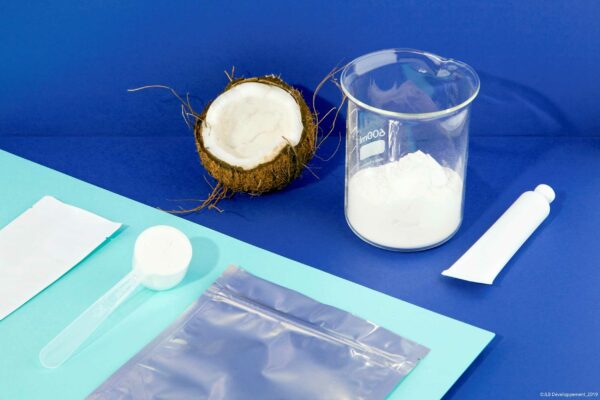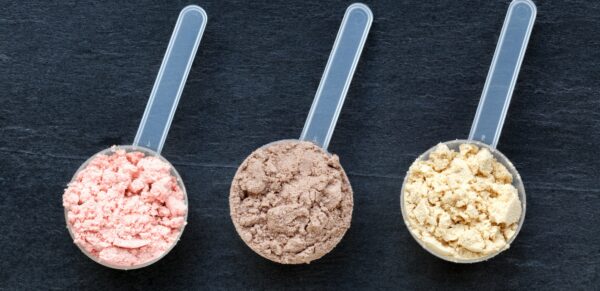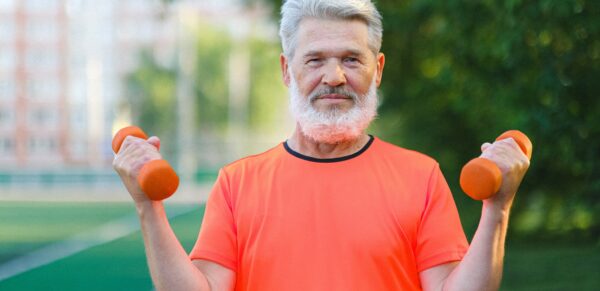How to formulate Sports Nutrition products?
From specific nutritional needs to the choice of ingredients and more!

Sports nutrition products are becoming increasingly technical and specific. They need to meet the specific nutritional requirements of sportspersons, helping them to perform and optimising their recovery. Decisive choices must be made in terms of formulation ingredients, matrix, dosage form and also manufacturer, right from the outset in development specifications.
Nutritional requirements for sports performance
Both professional athletes and amateurs who regularly practise a sport have higher requirements.
Fuel
The energy consumed by muscle activity and heat regulation needs to be replaced with macronutrients. Carbohydrates are first-line for energy metabolism. The carbohydrate requirements of a sportsperson are calculated to range from 6 to 10 g/kg/day, i.e. 50% to 60% of total energy intake. But you need to choose the carbohydrates for your formulation carefully in order to optimise the overall glycaemic index of your product (and prevent the glycaemic peaks which result in the opposite effect, hypoglycaemia, which causes drowsiness and therefore lower performance).
Macronutrient building blocks
Proteins and amino acids are also key macronutrients in a sports nutrition product. They help build and repair muscles, and health claims are made in this respect. The protein requirements of a sportsperson are calculated to be 1 to 2 g/kg/day, i.e. 15% to 20% of total energy intake.
Different types of proteins with different WPC/WPI/WPH characteristics, casein and plant-based proteins, and so-called “native” non-denatured proteins. JLB offers a premium-quality protein isolate called Pronativ®.
As for fats, the right fatty acids should be chosen, particularly omega 3. These essential fatty acids have anti-inflammatory and balance-restorative properties for sportspersons. The fat requirements of a sportsperson are calculated to be 1 to 1.5 g/kg/day, i.e. 25% to 30% of total energy intake.
Micronutrients
Lastly, sportspersons have particularly high requirements as regards micronutrients such as vitamins and minerals. Sweating alone leads to significant loss of minerals, particularly sodium and potassium. Minerals are essential for muscle contraction and for operation of the nervous system. The most important when practising sports are sodium, potassium, calcium, magnesium and iron. Fat-soluble vitamins (A, D, E and K) and water-soluble vitamins (B and C) are extremely important for athletes. They are antioxidants, and play a part in muscle synthesis and energy metabolism.
Water
Sweating also causes loss of water. Moreover, a mere 1% water deficit causes a 10% drop in performance (source). This is why isotonic rehydration drinks are useful for athletes.
The starting point for a sports nutrition project: your focus on communication and differentiation.
Indeed, before even beginning to develop a formulation, you should define your product target, how you want to make it stand out, and the claims it will make. This will enable you to choose its ingredients and specify the correct doses for achieving the benefits sought, and make any health and nutritional claims which will strengthen your product positioning.
The use of certain ingredients must also be approved in sales regions in order to comply with local regulations.
Lastly, targeting your sales price and cost price will enable you to make a better choice in terms of choosing ranges of active ingredients.
All of these prior considerations and project guidelines will be described in the marketing specifications sent to the manufacturer of the product.
Choosing the ingredients for a formulation
To ensure the suitability, effectiveness and stability of your sports nutrition product, you need to select your ingredients upstream. Expert in the development of premium-quality products, we advise you to choose characterised and assayed ingredients backed by a scientific dossier or, better still, a clinical trial. This way, you have guarantees and proof of active ingredient performance that you can present to consumers. Knowing the bioavailability of an active ingredient is essential today, because for an equal dose of ingredients, you can safely claim enhanced effectiveness.
In choosing the ingredients for a sports formulation, pay attention to the consistency between desired price positioning and product technicality. You will never be able to produce a premium technical formulation using low-cost ingredients, so choose quality guarantees which make a difference as far as consumers are concerned. The bio label guarantees a degree of naturalness and meets sustainable market expectations. Moreover, anti-doping labels and regulations (WADA standard, AFNOR NF V94-001 standard, Informed Sport and Sport Protect certifications) offer guarantees and security to competition-level athletes.
Tips for a successful formulation
Once you have selected your quality ingredients, you need to define your formula or recipe precisely in the technical specifications. What will ingredient proportions be in product composition, what will be the daily dose delivered and in what format will the product be consumed?
Daily dose of active ingredients is generally determined on the basis of efficacy studies by the supplier, and scientific literature confirming a physiological effect. In parallel, it is useful to know the minimum doses required which permit you to make nutrition and health claims.
Lastly, you need to decide on the Galenic formulation. There are numerous options here: capsules, tablets, powder, gel, drink in stick/shot/bottle presentation, bars, etc. Each Galenic form meets technical requirements and also marketing requirements, for example customer satisfaction at a given point in time. The “ready-to-drink” protein shake format thus meets the practicality requirements of weight trainers such as bodybuilders, who appreciate being able to ingest ready-to-go proteins during their training sessions.
For all of these reasons, it is important to choose the right manufacturer who will be able to offer you expert advice at each stage of your project.
We have extensive expertise in manufacturing dietary and nutraceutical products for sportspersons. Find out below how JLB DÉVELOPPEMENT can help you:
Do you have plans to develop sports nutrition products? Get in touch with our team to talk about them!



